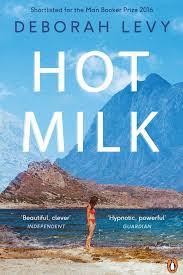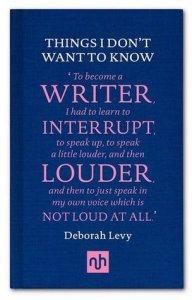 When I began this blog way back in the mists of 2006, I was a proper academic literary critic, which meant that I read books according to a number of non-negotiable rules. I still think they’re pretty good ones, if you want to get the most out of the reading experience. I accepted everything that happened within a story as being necessary to that story. I understood that every scrap of information available about the story was contained within the words of the text, so that in consequence, what the book meant had to be consistent with all I’d been told – there was no place for wild speculations, misplaced prejudices or readings that failed to take account of key elements of the narrative. And I was humble in the face of the story: it was not my place to say, effectively, I wish you were something other/different than you are. My job was to hold the story up to the light to show others all the internal workings, and to mine it for the most interesting things it had to say.
When I began this blog way back in the mists of 2006, I was a proper academic literary critic, which meant that I read books according to a number of non-negotiable rules. I still think they’re pretty good ones, if you want to get the most out of the reading experience. I accepted everything that happened within a story as being necessary to that story. I understood that every scrap of information available about the story was contained within the words of the text, so that in consequence, what the book meant had to be consistent with all I’d been told – there was no place for wild speculations, misplaced prejudices or readings that failed to take account of key elements of the narrative. And I was humble in the face of the story: it was not my place to say, effectively, I wish you were something other/different than you are. My job was to hold the story up to the light to show others all the internal workings, and to mine it for the most interesting things it had to say.
Over the course of the blogging years, this process has changed. Slowly, and almost imperceptibly, but to notable effect. Questions that had made no sense to me before – such as ‘Do you like this book?’ and ‘Are you enjoying it?’ – now became much more urgent. I not only recognised that I had certain quirky tastes and hopes for a book, I also gave into them and began to consider them something I should satisfy. And I began to read stories more literally, more superficially, with questions of motivation and plausibility paramount in my mind. In short, the culture of goodreads began to get under my skin, and I let it.

It’s essentially the story of a twisted mother-daughter relationship that has kept Sofia Papastergiadis a slave to her mother’s hypochondriac needs. Rose – whose Greek husband left her long ago – is a stubborn, proud Yorkshire woman who has developed a perplexing condition. Sometimes she can walk, and sometimes she can’t. Having exhausted all other routes of medical inquiry, she and Sofia have come to Southern Spain to the clinic of alternative guru, Dr Gomez, to whom they have paid an astronomical fee in the hope of finding a diagnosis and a cure. Of course, in this land beyond the boundaries of tried and trusted medical science, all might not be as it seems. Dr Gomez is a mercurial trickster, kind and attentive to Rose at one moment, taunting and testing her the next. His approach to Rose’s condition is certainly directed as much towards her controlling nature and her fantasies of victimhood as it is towards laboratory testing.
In the meantime, whilst Rose is occupied at the clinic, chronic under-achiever, Sofia, is left to her own devices. Inattentive to her own needs and safety, Sofia manages to get repeatedly stung by jellyfish in the sea and to hook up with a strange couple who live nearby, the potent Ingrid and her boyfriend, Matthew. Through a slightly torturous friendship, Sofia is made to understand her own unquestioning submissiveness and to explore her desires (which include sleeping with both Ingrid and the beach hut attendant who deals with jellyfish stings, Juan). She flies to Athens to meet up with her estranged father and his new wife and child (which doesn’t go particularly well), and she starts to disobey rules and conventions, stealing a fish from the local market and obliging the diving-school owner to unchain his howling dogs. And all of this takes place in a jagged and discontinuous narrative, spiky and surprising in its emotional ups and downs, and often ascerbic in its humor.
More than any book I’ve read in a long time, it challenged and complicated the way I was reading and made me wonder what kind of critic I am these days. I found myself looking at it with a kind of odd double vision that was not comfortable. So, for instance, on one of their earlier meetings, Sofia, who has just bought herself a pizza, offers the box to Ingrid. Ingrid frowns at it with contempt, picks up the pizza and throws it on the ground. No one comments on this.
Critical reading: Sofia is so downtrodden by her mother that she simply takes this kind of bullying behavior without batting an eyelid. In fact, she is hypnotized by it, partly because her mother has kept her in place this way for years, partly because such behavior inevitably contains a repressed part of her self that she can no longer access any other way.
Ordinary reading: Who even does that? It is so incredibly rude and impolite and why on earth does Sofia stand for it? Oh no, you are not going to make friends with this person are you, Sofia? For crying out loud, run, run to the hills and never look back!
Another instance: Ingrid, who earns money from sewing, gives Sofia a suntop she has made for her, on which is stitched the word Beloved. Sofia gets a certain amount of thrill from this and her low self-esteem is briefly boosted. Until she puts the top in the wash and realises that the word embroidered on it is not as she thought Beloved, but instead, Beheaded.
Critical reading: Sofia is so desperate for affection that she projects her need for it out onto the world in an indiscriminate way. What she gets back from the world, however, is emotional violence and hostility, which she often fails to recognize for what it is.
Ordinary reading: Why would anyone stitch a word like Beheaded onto an orange silk suntop? (Is Ingrid psychotic?) And how could anyone make such a mistake when reading it? At the very least, our heroine most certainly should have gone to Specsavers.
I intended to finish this book, but at some point about the three-quarter mark I put it down and failed to pick it up again. As you may imagine, my feelings about it are conflicted. I think there’s much to be said in its favour. There’s clearly a profound exploration of the mother-daughter relationship going on here, and I also enjoyed straightforwardly the scenes with Rose and Dr Gomez in the clinic. But it just strained my credibility too far in places, and stylistically was too choppy for my personal tastes. Given that my favorite writers are Colette and Willa Cather, everything else is going to have to be perfect for me to put up with choppy prose. But if you can read this book through the lens of artistic critique, then I salute you wholeheartedly and think you’ve got the best chance of making the most of an often intriguing story.
Advertisements